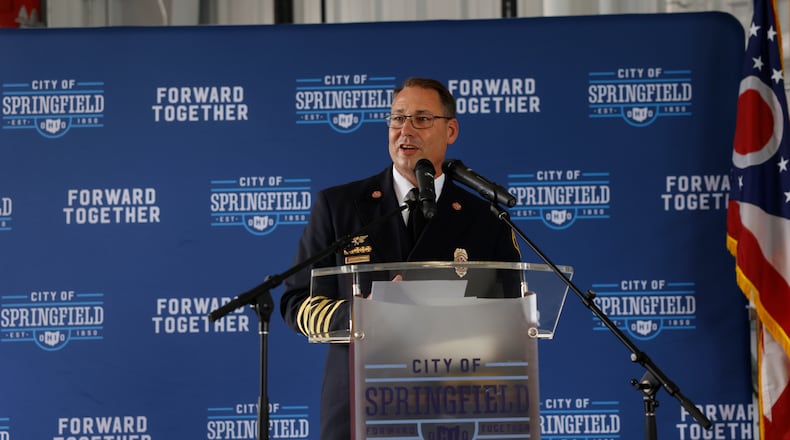If passed, changes will go into effect at the start of next year.
The fire department has seen a continued increase in the number of emergency calls to which it responds, with the majority being EMS calls, Fire Chief Jacob King said. Around 3,300 to 3,500, or about 60%, are calls to skilled nursing or assisted living facilities for non-emergent patients needing transportation to the hospital.
“A lot of times, we are seeing that these are low acuity calls, not life-threatening, non-emergency situations to where another means of transportation, to medical, to the hospital, would be appropriate by using private ambulance service or other vehicles to transport them to the hospital for that further evaluation,” King said.
If approved, the fire department would charge $500 to these facilities for each non-emergency call that “should have been handled differently,” King said.
This also includes lift assist calls or assessments of people who may not want to go to the hospital in a non-emergency situation.
The end goal is to reduce non-emergency responses to free up personnel to respond in emergency situations, King said.
“If we do not see reductions in the call volumes, our only other option is to increase our capacity to manage them,” King said.
The fire department wants to be “good stewards” of taxpayer dollars and encourages nursing facilities to use other resources to assist their residents, King said.
Fire departments nationwide have struggled with similar issues, King said. Springfield is not the first community to charge fees.
For example, the Westfield Fire Department in Indiana earlier this year implemented fees of $500 for residential facilities for the first three lift assist calls with an increase to $1,000 to follow.
If Springfield’s proposal is approved, the fire chief will also be allowed to recommend fees for services the department provides that are not “part of the core emergency services,” City Manager Bryan Heck said at a recent city commission meeting. These include repeat fire alarms where there may be a known issue, underground storage tank inspections and other non-emergent services.
“Maybe a business that has a fire alarm set up for their establishment and they know there’s an issue or problem with that and they do not fix it, and then we are continually being called out to fire alarms that are not legitimate because it has not been maintained properly,” Heck said.
Fee rates are in line with what other jurisdictions and the state fire marshals charge for these services, King said.
The amended ordinance would also establish a formal permitting process for food truck inspections with a small fee, King said. Food trucks currently must pass inspections by the Springfield Fire Rescue Division, but permits are not required.
Food trucks can present unique fire safety hazards due to propane tanks or high electricity use, King said.
“The idea of these safety inspections is looking out for the safety of the public, as these food trucks are either beside roadways or at larger community gatherings,” King said. “We want to ensure that there’s fire safety practices in place to prevent injury to any of the community that would be there to purchase items from those vehicles.”
About the Author

